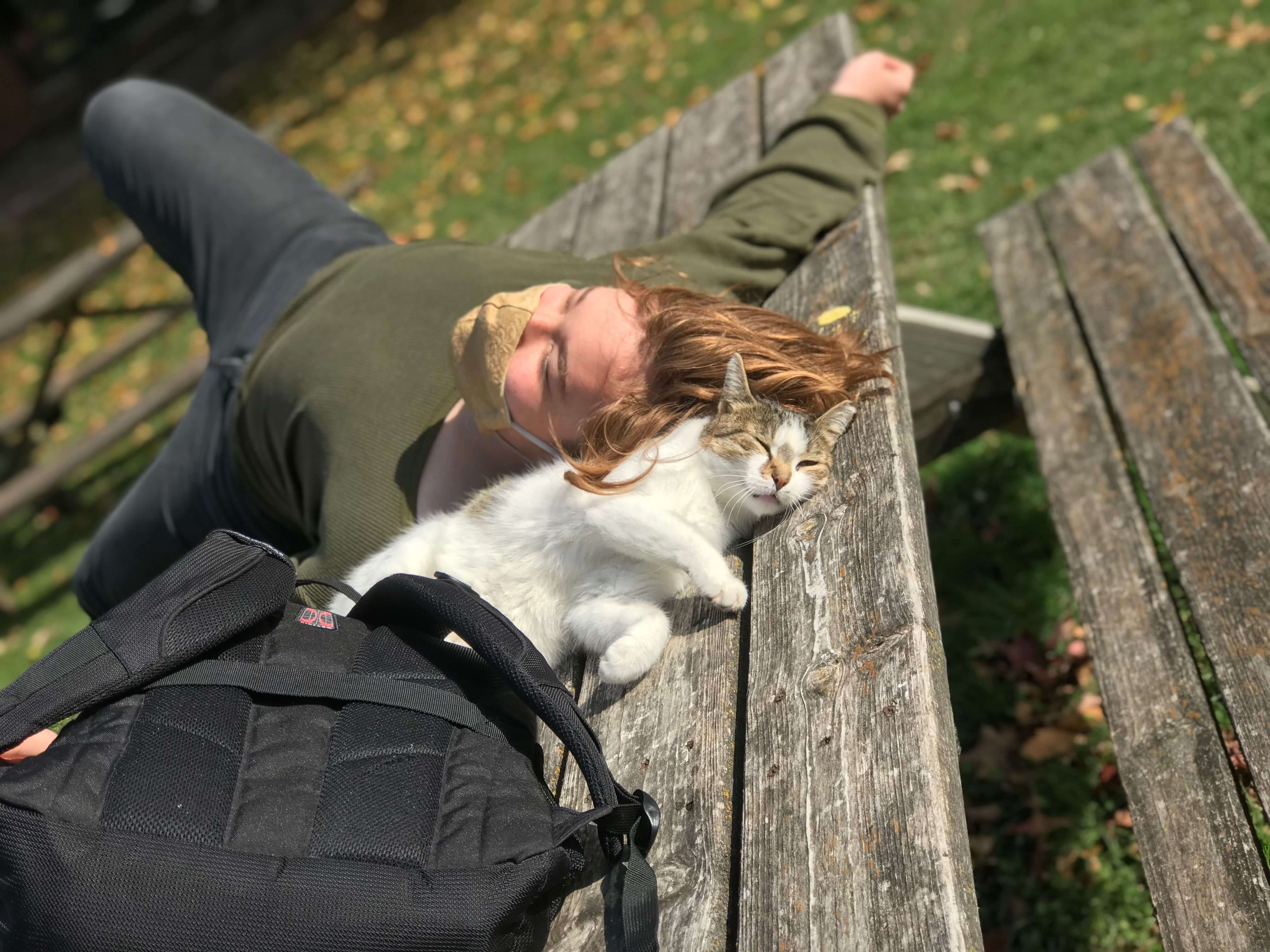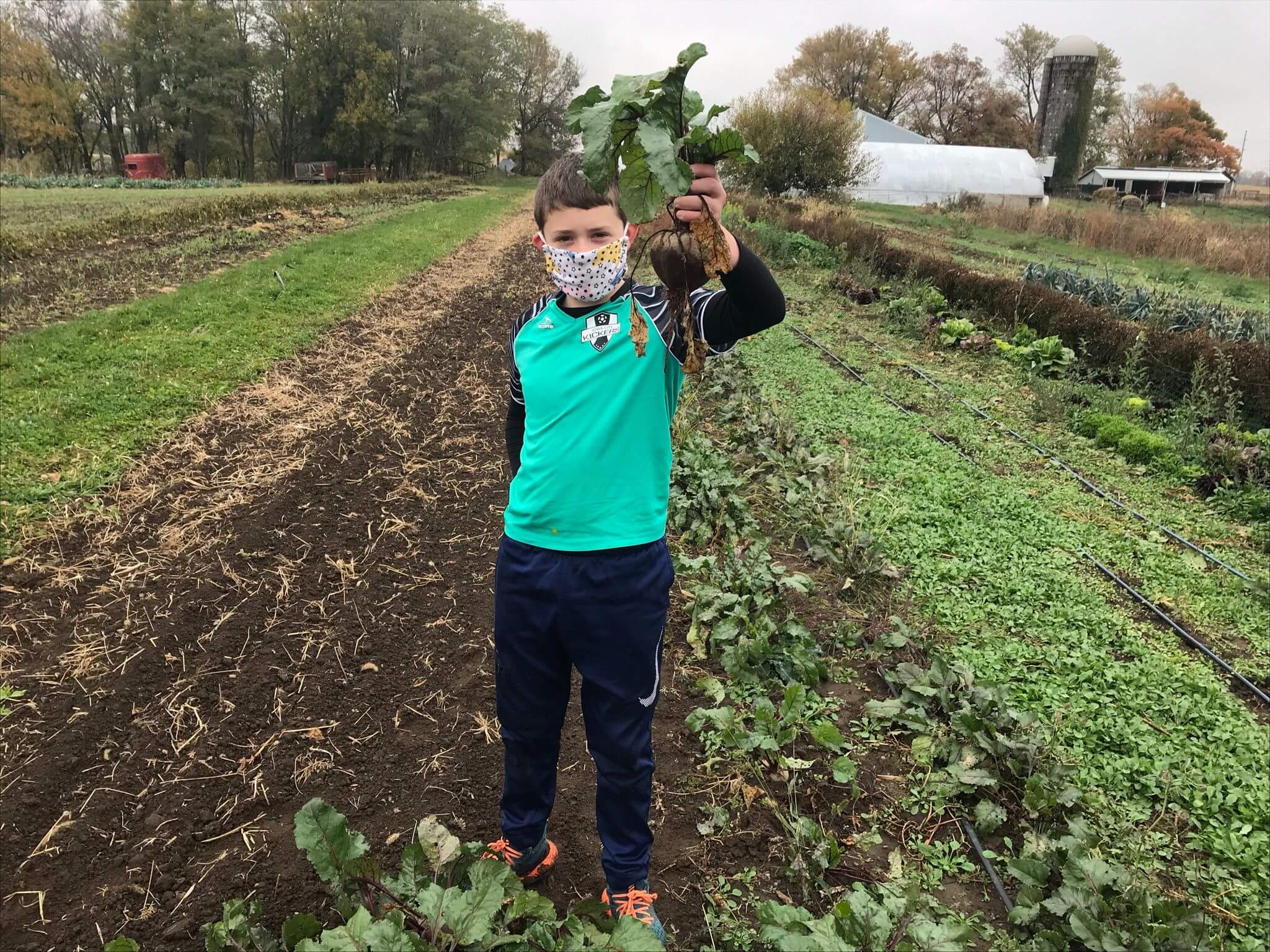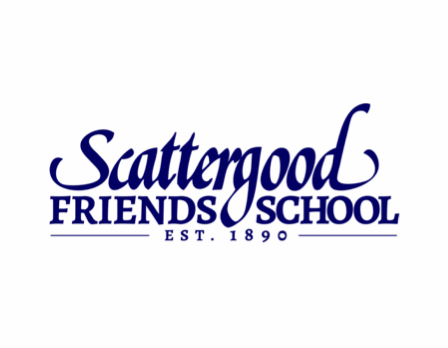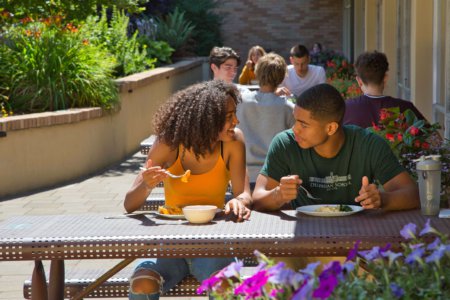Few schools can foster a sense of community the way Scattergood Friends School has since 1890. Today, it continues to instil the tenets of Quakerism –– simplicity, peace, integrity, community, equality, and stewardship –– to contribute to its learners’ intellectual, physical, and spiritual development. Here, they are free to be themselves while discovering who they want to be.
Just ask 12th Grader Cecilia Clark. The transition from online learning due to COVID-19 to on-campus learning was initially challenging for the 17-year-old, but with Scattergood’s welcoming environment, adjusting to the school became a seamless process.
“I began making friends and finally understanding the ins and outs of this amazing school,” she says. “Grasping why and how the school incorporates Quakerism into daily life has helped calm my anxieties and alleviate my fear.”
Located in rural West Branch, Iowa, Scattergood makes the perfect setting for students’ self-discovery. It is a brave space, an all-gender, all-inclusive, quaint school with small college-preparatory classrooms that host profound conversations. Core lessons cover English, Social Studies, Math, and foreign language. Each is progressive and experiential in its unique way.
Stroll through their wholesome campus and you’ll witness the school’s strong connection to nature, which provides students with an ideal backdrop for self-discovery. Similarly, Clark’s excitement for opportunities to interact with nature is palpable. This city girl turned nature-lover credits the “Flower Power” class — located at Scattergood Farm, a mere 20-minute walk from campus — for opening her eyes to Earth’s natural wonders.
“It’s insanely different from everything I had experienced at my other schools,” she says. “Thanks to Scattergood Farm, my peers and I get to interact with nature as a lesson.”

To graduate, Scattergoodians are required to complete 30 hours of community service a year and achieve admission to a four-year college or university. Source: Scattergood Friends School
Students get to decide how much or little time they spend enjoying this outdoor interaction. Regardless, Scattergood Farm –– which provides over 140 varieties of certified organic fruits and vegetables and raises some 200 animals a year –– remains open to all.
Some students are content with spending just a few days per year on environmental education. Others prefer to fully immerse themselves in farm life by engaging in original scientific research projects, enrolling in expanding Farm Project classes, or volunteering whenever their schedules permit. Scattergood’s interdisciplinary Farm Term is a three-week programme that kicks off each academic calendar on a high note.
“During Farm Term, every student only has one class in the morning. Students get to choose which classes they want to take,” explains science, health and farm teacher Dana Foster. “The interdisciplinary aspect of this course allows students to learn about a variety of topics while still centering their learning at the farm.”
Pastoral Poetry is one of Foster’s favourite sessions to conduct. It takes place in the school’s apple orchard, overlooking a pasture. While breathing in the crisp air and taking mental snapshots of picturesque sceneries, students read classical pastoral poetry before learning to write stanzas of their own. The class is a prime example of how Farm Term doesn’t just nurture practical farming skills, but those related to humanities, science, and social studies too.

Scattergood Farm provides over 140 varieties of certified organic fruits and vegetables and raises some 200 animals a year. Source: Scattergood Friends School
The rest of Scattergood’s living laboratories further complement an already robust learning experience. Scattergood Prairie spans over 26-acres and serves as a classroom during students’ science lessons and as a studio during art classes. As students assist the school’s faculty in the annual prairie burn to maintain grass vitality, they learn the art of Prairie Management. The Scattergood Pond and its small sand beach are where they swim, find samples and specimens for biology class, organise bonfires and broom hockey games, or angle for catfish.
May Term classes are just as invigorating. “Some students go on three-week-long trips — to the wilderness, around the US, or Latin America — while other students stay on campus. The latter choose one speciality class that runs all morning, and another in the afternoon,” explains Foster.
Scattergoodians don’t need to wait for May to pack their bags. Off-campus excursions are a norm here and have ranged from cross-country skiing at Camp du Nord, backpacking or kayaking in the Ozarks, Appalachian Trail hiking, or Spanish immersion trips to Costa Rica, Mexico, Bolivia, or Honduras.
Service trip destinations have included Su Casa (a shelter for displaced Latino families) on Chicago’s south side and Tillers International in Michigan (an organisation that focuses on international rural farming development using draft animals).
To graduate, students are required to complete 30 hours of community service a year and gain admission to a four-year college or university. However, impressing university admissions officers isn’t too much of a challenge with the experiences gained from Scattergood.
“All of our students have the opportunity to create change in the community,” explains Foster. “We have regular meetings, where students organise, run and guide the conversations that need to be had. This allows them the chance to participate in group decision making and know they are valued members of this community.”
Follow Scattergood Friends School on Facebook, Instagram, Twitter and YouTube













